E-Learning opportunities on biodiversity and IPBES
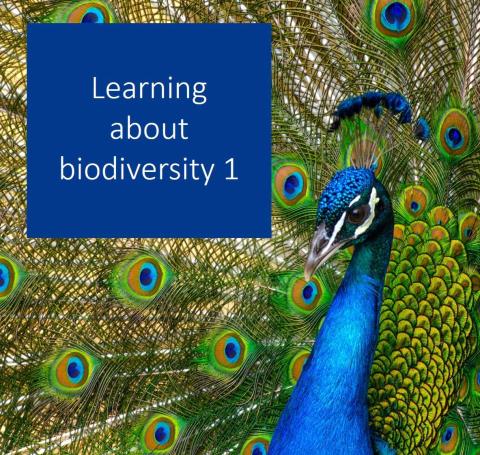
Last edited 24 September 2024 (note that select information for updated; most content was not checked for updates at this time).
What is biodiversity? What is IPBES? And what does it actually do? Fortunately, we now have plenty of learning opportunities to choose from. This blog post was inspired by an ONet Caucus Day: thank you to ONet's many dedicated volunteers! This is the first in a series: scroll down for links to parts 2 and 3.
Learning about IPBES
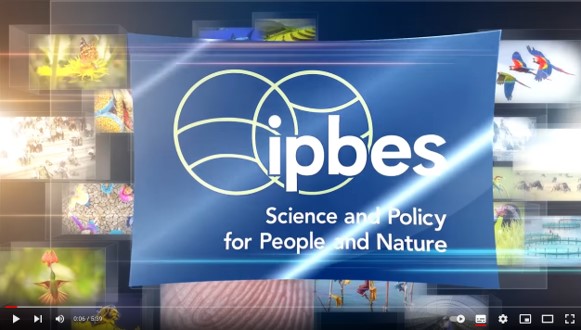
- For a 5.5-minute introduction to IPBES, look no further than YouTube. The IPBES Secretariat's YouTube Channel also covers IPBES reports, stakeholders, webinars, and more.
- If you're more of a reader, you might want to have a look into Axel Paulsch's 2019 IPBES: An Introduction for Stakeholders, and ONet's own Guide to IPBES plenary meetings for new observers.
- The final version of each IPBES assessment report comes with a summary for policy makers: these shorter publications are designed for readers who are new to the topic, and they're available in all six UN languages. To support readers, IPBES also provides an online glossary.
- How does IPBES produce its assessments? Peek behind the scenes of the Invasive Alien Species assessment with the Assessment Coordinator.
- For those who'd like to dive deeper into IPBES' work, the Secretariat provides e-learning modules: you'll gain a solid foundation in the IPBES conceptual framework, assessment process, and data management policy.
Learning about biodiversity and conservation
Suggested watching, reading & listening
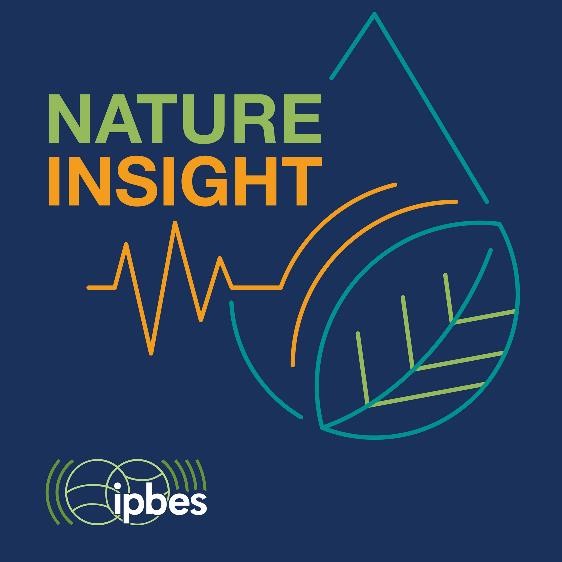
- For an easy introduction to biodiversity, you might enjoy National Geographic's encyclopedic entry on Biodiversity and their article on Global Biodiversity.
- For more information and illustrations, see these videos:
- What is biodiversity? by the Natural History Museum. Subtitles are also available in French, Hindi and Spanish.
- Why is biodiversity so important? on TED-Ed. Subtitles are also available in many other languages.
- If you'd rather listen, check out IPBES' own Nature Insight podcast, with three seasons now available.
- In 2022, Sandra Díaz and Yadvinder Malhi published an Annual Review on Biodiversity: Concepts, Patterns, Trends, and Perspectives: if you're looking into the scientific literature, you might want to start there.
- To help you delve into the scientific literature, perhaps you would like to complete the tutorial on Words of nature conservation by MOOC conservation.
Online courses
Given the thousands of online courses available today, this blog can only provide a small selection. The main selection criteria were
- reputable providers.
- Access at no cost to you, thanks to generous providers or sponsors. Wherever possible, we opted for courses that provide not just the content, but also a certificate free of charge to learners.
Please note that it was not possible to test each course in full. Please help us improve this information by sharing your experiences in the comments.
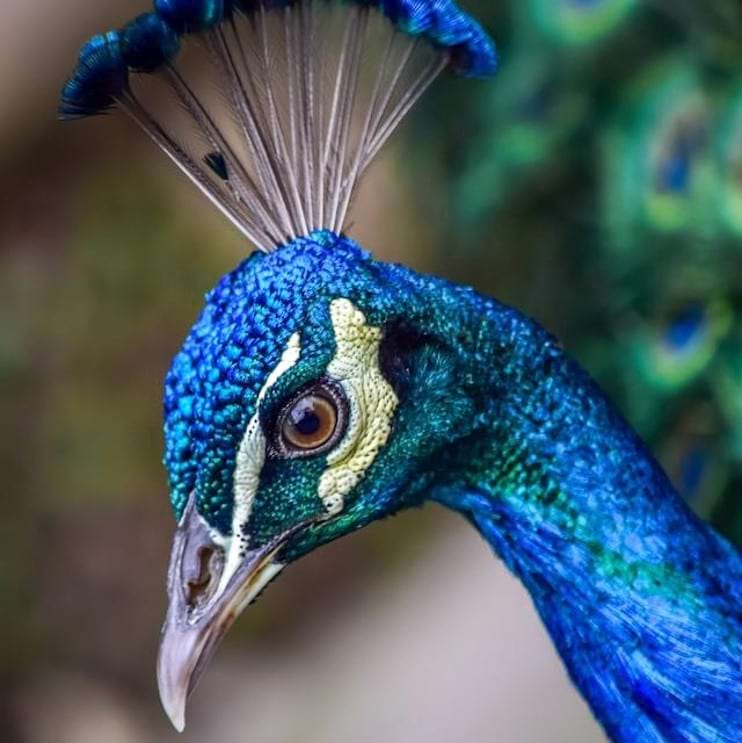
Foundations
Biodiversity and ecosystems
- Specialization – Introduction to Biology: Ecology, Evolution, & Biodiversity: "Understand nature like a biologist. Embark on a journey from the classroom to museums and nature reserves to gain a broad overview and appreciation of three important fields of biology."
Introductory programme. Estimated to take you 3 hours a week for 4 months. While the courses are available for free, the certificate comes at cost. Financial aid is available. Offered by Rice University. Available with subtitles in different languages; see below. You can also take each course within the programme separately:- Introduction to Biology: Ecology. Estimated to take you 19 hours.
- Introduction to Biology: Evolution. Estimated to take you 11 hours.
- Introduction to Biology: Biodiversity. Estimated to take you 22 hours.
- The University of the Sunshine Coast offers two courses, on terrestrial and aquatic ecosystems.
Introductory courses. While the courses can be accessed for free for the estimated time, longer access and a certificate come at a cost. The courses are taken separately:- Life on Land: Ecology, Evolution, Challenges, and Solutions. Estimated to take you 4 hours a week for 4 weeks.
- Life Below Water: Conservation, Current Issues, Possible Solutions. Estimated to take you 3 hours a week for 4 weeks.
- Biodiversity: This course seeks to "enable the learners to better understand the biodiversity and its issues in terms of human and territorial development".
Introductory course. While this course is currently not running, the course's 74 videos remain available. You can select from the videos and watch them in any order: they take about 2.5-13 minutes, each; the original MOOC was estimated to take 2-3 hours a week for 6 weeks. Currently, there is no certificate available. Offered by UVED, one of France's Thematic Digital Universities. For more information on the course in French, see below.
- Introduction to ecosystems: "Gain an understanding of the natural world and how the web of life works, with illustrations from around the world."
Introductory programme. Estimated to take you 2 hours a week for 6 weeks. Comes with a free statement of participation. Offered by The Open University.
- Ecology: Ecosystem Dynamics and Conservation: "This course is an introduction to ecology and ecosystem dynamics using a systems thinking lens. Through a case study on Mozambique's Gorongosa National Park, learners will explore how scientists study ecosystems, and investigate the complex array of factors that inform management efforts."
Intermediate programme. Estimated to take you 3 hours a week for 3 weeks While the courses are available for free, the certificate comes at cost. Financial aid is available. Offered by the American Museum of Natural History. Available with synchronisation or video subtitles in 22 languages; see below.
- Specialization – Introduction to Environmental Science: "Use environmental science to analyze energy . Learn how the field of environmental science applies scientific principles to analyze real-world problems."
Introductory programme. Estimated to take you 10 hours a week for 2 months. While the courses are available for free, the certificate comes at cost. Financial aid is available. Offered by Dartmouth College. You can also take each course within the programme separately:- Environmental Science.
Estimated to take you 29 hours. - Population, Food, and Soil.
Estimated to take you 15 hours. - Energy and Environment.
Estimated to take you 22 hours.
- Environmental Science.
- Environmental Studies: A Global Perspective: "Learn the fundamentals of environmental studies as you explore global and local communities and determine solutions to environmental challenges."
Introductory course. Estimated to take you 2-3 hours a week for 6 weeks. While the course is available for free, the certificate comes at cost. Offered by Curtin University.
Note that environmental studies is different from environmental science or ecology.
- Planetary Boundaries: "In this massive open online course, see the rapidly evolving trends in global environmental change and the responses aimed at slowing or eliminating these changes."
Intermediate course. Estimated to take you 2-4 hours a week for 8 weeks. While the course is available for free, the certificate comes at cost. Offered by the SDG Academy, hosted by the SDSN Association, a global initiative for the United Nations. Available with video transcripts in Spanish and Italian.
- The Great Sustainability Transition: Global Challenges, Local Actions: "Discover how global environmental crises are connected, their impacts, and how to take action in your local community."
Introductory course. Estimated to take you 5 hours a week for 4 weeks. While you can access the course for free for 4 weeks, longer access and a certificate come at a cost. Offered by Leiden University. This course is also available on another learning platform, where it is estimated to take you 26 hours.
- The Big Stuff: Evolution and Ecology: "In this course, we will explore how evolution works to generate new species, the wide variety of life on earth. We will also touch on the importance of biodiversity for the overall health of our planet, and for our well being as humans. Then we will discuss ecology and the interconnectedness of life and touch on one big ecological issue in today’s society, conservation.
Introductory course. Estimated to take you 10 hours. While the course is available for free, the certificate comes at cost. Financial aid is available. Offered by the University of Colorado at Boulder. Available with subtitles in different languages; see below.
- Extinctions: Past and Present: "Discover the diversity of life on earth, the impacts of five past mass extinctions and the prospect of a sixth extinction today."
Introductory course. Estimated to take you 3 hours a week for 5 weeks. While you can access the course for free for 5 weeks, longer access and a certificate come at a cost. Offered by the University of Cape Town.
- The Open University offers a range of introductory courses on mammals. Each of the courses comes with a free statement of participation. Also see the course on aquatic mammals below.
- Introducing mammals: "a starting point for the study of mammals." Estimated to take you 5 hours.
- The ‘Studying Mammals’ series: "This collection of 10 free courses covers everything from the largest to the smallest of mammals, their eating habits and social interactions." Each course estimated to take you 10 hours of study.
- Biodiversity, Guardianship, and the Natural History of New Zealand: A Museum Perspective: "Learn how the natural history of Aotearoa has shaped its unique biodiversity, Māori culture and the values of New Zealanders."
Introductory course. Estimated to take you 2 hours a week for 2 weeks. While access to the course for 2 weeks is free, longer access and a certificate come at a cost. Offered by the Museum of New Zealand Te Papa Tongarewa.
- The Living Amazon: Science, Cultures and Sustainability in Practice: "Learn about the importance of the Amazon at local and global scales, the threats the region faces, and how sustainable development can help save its extraordinary biodiversity and peoples for current and future generations."
Introductory course. Estimated to take you 2-3 hours a week for 8 weeks. While the course is available for free, the certificate comes at cost. Created in a collaboration between the Science Panel for the Amazon (SPA), the SDG Academy, the World Wildlife Fund (WWF), and the World Bank, with financial support from the Global Environment Facility (GEF). Also available in Spanish and Portuguese under the same link.
- Nature’s crown jewels: An introduction to natural World Heritage: "Natural World Heritage sites represent some of the planet’s most precious natural areas, which the international community commits to protecting for present and future generations." You will "learn key World Heritage concepts in an easy-to-access, interactive way" and "discover ways to become involved with the wider community conserving natural World Heritage."
Introductory course open to everyone, and also relevant for conservationists, States Parties, site management authorities and managers, protected areas practitioners, NGOs, IPOS, the private sector and academia. Estimated to tak you 2-4 hours. While you receive a score on this course, information on certification is unclear. Developed by IUCN with inputs from UNESCO World Heritage Centre, ICOMOS and ICCROM. For the link to the Portuguese version, see below.

Terrestrial ecosystems
- From the Ground Up: Managing and Preserving Our Terrestrial Ecosystems: "How can we preserve, restore, manage and sustainably use terrestrial ecosystems? Join us as we explore this question in the Brazilian Amazon and around the world."
Introductory course, recommended for graduate students and advanced undergraduate students, practitioners in forestry, ecosystem management, conservation, and related fields, sustainable development practitioners and private-sector actors. Estimated to take you 2-4 hours a week for 10 weeks. While the course is available for free, the certificate comes at cost. Offered by the SDG Academy, hosted by the SDSN Association, a global initiative for the United Nations.
- Neighbourhood nature: This course "will provide you with basic scientific and observational skills so that you can go into your local neighbourhood to discover the animals and plants in open spaces." Note that the course focuses on woodland and ancient trees.
Introductory course. Estimated to take you 1 hour. Comes with a free statement of participation. Offered by The Open University.
- Soil, a burst of life: the hidden world beneath our feet: "This course aims at raising awareness and increasing knowledge of the secret life beneath our feet, taking the public on a fascinating journey of discovery. It also allows you to familiarise with European Union initiatives for soil (biodiversity) protection."
Introductory course. Estimated to take you 2-3 hours each for the 3 modules. Comes with a free certificate. Offered by the European Commission. Available in multiple EU languages.
- As above, so below: An introduction to soils, ecosystems and livelihoods in the Tropics: "The tropics are as beautiful and diverse below-ground as they are above-ground. Learn how to use knowledge about the natural variability in soil properties for the sustainable management of ecosystems and farms."
Introductory course. Estimated to take you 4-6 hours a week for 7 weeks. While the course is available for free, the certificate comes at cost. Offered by Katholieke Universiteit Leuven.
- Sustainable Soil Management: Soil for life: "Soil is the earth’s fragile skin that anchors all life. [...] Learn why soil is so important, how it's being threatened and what we can do to protect this natural resource so vital to our lives."
Introductory course. Estimated to take you 8-10 hours a week for 7 weeks. While the course is available for free, the certificate comes at cost. Offered by Wageningen University & Research.
- Mountains 101: "Mountains 101 is a broad and integrated overview of the mountain world. This 12-lesson course covers an interdisciplinary field of study focusing on the physical, biological, and human dimensions of mountain places in Alberta, Canada, and around the world. Specifically, [...] we’ll learn about their importance for biodiversity and water cycles, globally and locally [...].
Introductory course. Estimated to take you 18 hours. While the course is available for free, the certificate comes at cost. Financial aid is available. Offered by the University of Alberta. Available with subtitles in different languages; see below.
- Asian Environmental Humanities: Landscapes in Transition: "In this course [...] we will introduce you to some of the most vibrant cultural trends addressing landscape appreciation, degradation, protection, and rehabilitation that currently circulate in the Asian hemisphere."
Introductory course. Estimated to take you 3 hours a week for 4 weeks. While the course is available for free, the certificate comes at cost. Financial aid is available. Offered by the University of Zurich. Available with subtitles in different languages; see below.
Aquatic ecosystems
- One Planet, One Ocean: "A holistic view of how the ocean functions, how human interactions with the ocean can be understood, and what solutions are available to support both sustainable use and stewardship of our blue planet." You may also want to see the separate course website and YouTube Channel.
Introductory course, recommended for "those who loved Planet Earth and The Blue Planet", sustainable development practitioners, private-sector actors, graduate students and advanced undergraduate students, and climate change activists or practitioners. Estimated to take you 4-6 hours a week for 6 weeks. While the course is available for free, the certificate comes at cost. Offered by the SDG Academy, hosted by the SDSN Association, a global initiative for the United Nations.
- Marine Biology: "This course is about life in the oceans, from the sunlit surface to the inky depths, from microscopic phytoplankton to the great blue whale. The ocean is among the world’s most inhospitable environments for scientific research, which is why we know as much about the surface of the moon as we do the bottom of the sea."
Introductory course. Estimated to take you 6 hours. While the course is available for free, the certificate comes at cost. Offered by the American Museum of Natural History.
- Mangroves Biodiversity & Ecosystem: "The course has been designed to build expertise in mangrove biology, ecology, assessment, management, and restoration."
Recommended for young academics, professionals, managers, and any other interested individuals, especially from developing countries. Estimated to take you 2 hours. Comes with a free certificate. Offered by the Institute for Water, Environment and Health at the United Nations University. Note: the course is currently closed and not available until mid-2024; you can sign up under this alternative link and fill in a form to be notified when the course reopens.
- Acquatic mammals: "You will meet some aquatic mammals, find out how we can study them, consider their evolutionary history and read about human impacts on one iconic group."
Introductory course. Estimated to take you 5 hours of study. Comes with a free statement of participation. Offered by The Open University. Also see the other courses on mammals above.
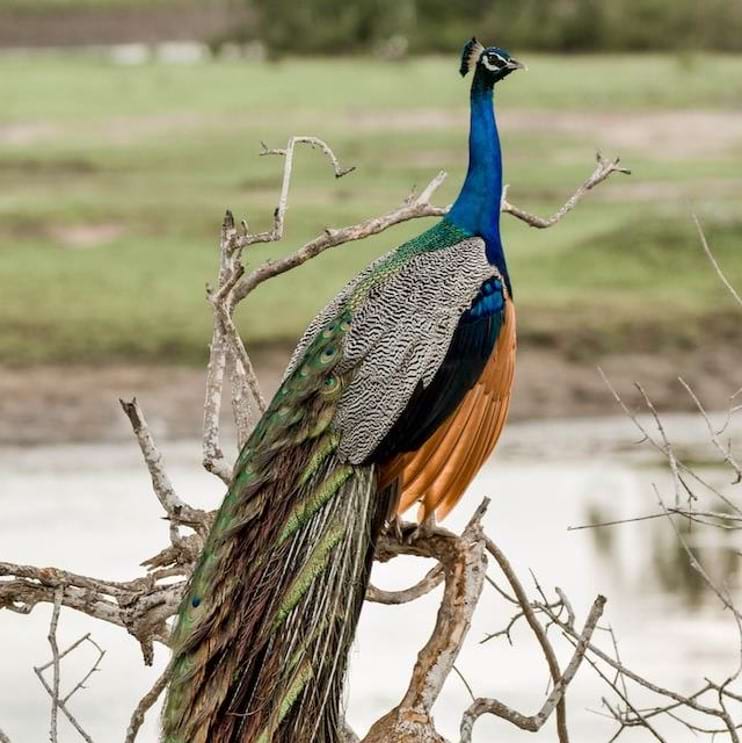
Food production and agriculture
Unsustainable food production and agriculture are major drivers of the biodiversity crisis.
- Mainstreaming biodiversity for food and nutrition: "Integrating biodiversity into food and nutrition policies, markets and daily diets can contribute to improve the nutritional status of the population, improve producers incomes and livelihoods, and promote biodiversity conservation, through the production and regular use of a greater variety of foods."
Recommended for policy makers, researchers, university professors, graduate or undergraduate students, nutritionists, extension workers or other professionals. No time estimate provided. No information on certificates provided. Offered by The Biodiversity for Food and Nutrition Project, coordinated by Bioversity International and funded by the Global Environment Facility.
- Agroecology, an introduction: "This course aims at helping you discover what agroecology is, through the complexity of the various approaches that have emerged over the years and in various regions of the world, and through the ways they can be implemented in the fields, and studied, as agricultural practices."
Introductory programme. Estimated to take you 3.5 hours a week for 7 weeks. There is no certificate available; according to the information on the French version, however, MOOC badges are issued. Produced at Montpellier SupAgro. For the link to the French version, see below.
- SDG Indicators 2.5.1 and 2.5.2 - Plant and Animal Genetic Resources: "You will learn about [...] the concept of genetic resources for food and agriculture, how to conserve these resources and the main threats to plant and animal diversity."
Recommended for policy makers or advisors, national coordinators/ focal points for animal or plant genetic resources, and data analysts. Estimated to take you 6.5 hours. Comes with free digital certification. Offered by the Food and Agriculture Organization of the United Nations. For the link to the French and Spanish versions, see below.
Species conservation, the IUCN Red List, and the IUCN Green List
-
Species conservation: "Species - animal or plant - conservation is a key component of protected area management. It is often included as a goal when planning activities, and is key when monitoring the obtained results and the impacts generated on the field. The MOOC’s goal is therefore to introduce the notion of species, what they represent within a protected area's heritage, how managers conserve them, what the best conditions are, the limits, the opportunities, how can they be used to improve PA results and so on."
Introductory course. Estimated to take you 40 hours in total. Comes with a free certificate of success upon achieving a minimum grade. Developed by IUCN-PAPACO (African Protected Areas & Conservation Program of the International Union for Conservation of Nature) and its partners. For the link to the French version, see below. This course is part of the free Online Certificate in Protected Area Conservation granted by Senghor University upon passing a proctored exam.
The IUCN Red List is "the world’s most comprehensive information source on the global extinction risk status of animal, fungus and plant species," according to its website. This is a topic for those who want to dive deeper into biodiversity conservation.
- IUCN Red List Assessor Training: "You will learn about the IUCN Red List assessment process and how to compile a scientifically rigorous IUCN Red List assessment."
Recommended for regional and global assessors. Estimated to take you 13 hours. Comes with a free certificate of achievement. Offered by IUCN in partnership with ConservationTraining.org, funded by the MAVA Foundation and the Environment Agency Abu Dhabi. Note that the enrollment button only works after you create an account and log in.
- IUCN Green Status of Species: "The IUCN Green Status of Species is an optimistic new part of the IUCN Red List of Threatened Species that provides a complementary tool for assessing species recovery and the impact of conservation."
No information on the course level provided. Estimated to take you 7-8 hours. Comes with a free course certificate. Edited by IUCN staff on ConservationTraining.org. Note that the enrollment button only works after you create an account and log in.
"The Red List of Ecosystems is an innovative tool for assessing and monitoring the status of ecosystems," according to the official website.
- IUCN Red List of Ecosystems: The Global Standard for Assessing Risks to Ecosystems: "This course introduces the IUCN Red List of Ecosystems and its successful use and policy impact through real-world case studies."
Introductory course. Estimated to take you 5 hours a week for 2 weeks. While you can access the course for free for 2 weeks, longer access and a certificate come at a cost. Offered by Deakin University.
- The Red List of Ecosystems for Assessors - Specialised Course: "Learn how to assess ecosystem’s risks. Get trained on how to express results and use them for impact on the ground."
Recommended for people who want to know how to assess and communicate on ecosystem’s risks and seasoned assessors looking for reference guide for RLE. Estimated to take you 12 hours. Comes with a free certificate of completion. Offered by IUCN.
"The IUCN Green List is a global campaign for successful nature conservation. At its heart is the Green List Sustainability Standard that provides a global benchmark for how to meet the environmental challenges of the 21st century." For details, see the official website.
- An introduction to the IUCN Green List for Protected and Conserved Areas: "Join this free online course to learn what the IUCN Green List is and why it can play a crucial role in improving the world’s Protected and Conserved Areas!"
Introductory course available to everyone, especially recommended for professionals in the protected and conserved areas. Estimated to take you 2-4 hours. Comes with a free certificate of completion. Developed by IUCN with contributions from the World Commission on Protected Areas (WCPA). Note that this course is not yet available as of 4 March 2024 and coming soon. For the link to the Portuguese version, see below.
Alongside the course on the IUCN Green List, you might also be interested in the course 'Planning for Conservation: Using the Conservation Standards' listed in part 2 of these e-learning catalogues.
Courses in languages other than English
If you know of more courses in languages other than English, please share them in the comments.
In Spanish
- The course on 'The Living Amazon: Science, Cultures and Sustainability in Practice' described above is also available in Spanish: see the standard link (description in Spanish).
- The Spanish version of the course on plant and animal genetic resources described above: Indicadores 2.5.1 y 2.5.2 de los ODS - Recursos genéticos de plantas y animales.
- In Spanish, on agroecology: Agroecología: Transición hacia sistemas alimentarios sostenibles. Estimated to take you 40 hours. Comes with a free certificate. Offered by the Food and Agriculture Organization of the United Nations and the Latin American Scientific Society for Agroecology (SOCLA).
Also see below for courses in further languages that may also be available in Spanish.
In French
- The French version of the course on plant and animal genetic resources described above: Indicateurs ODD 2.5.1 et 2.5.2 - Ressources génétiques végétales et animales.
- The French version of the biodiversity course listed above: Biodiversité. For more detailed information in French, see the course website.
- The French version of the introduction to agroecology listed above: Agroécologie.
- The French version of the course on species conservation described above: Conservation des espèces.
Also see below for courses in further languages that may also be available in French.
In German
- In German, on biodiversity in gardens and on balconies: Lass es brummen – Fachwissen und Anwendungen für mehr Artenvielfalt vom Garten bis zum Balkon. Introductory course, recommended for everyone. Estimated to take you 32 hours. Comes with a free certificate of participation. Offered by the University of Applied Sciences Weihenstephan-Triesdorf.
- In German, on measures to promote biodiversity: Biodiversitätsfördernde Maßnahmen. Estimated to take you 15 hours. No information on certificates provided at time of publication. Offered by the University of Applied Sciences Weihenstephan-Triesdorf.
- In German, on select species groups. Offered by The Nature And Biodiversity Conservation Union (NABU) in cooperation with expert authors. Note that these courses draw on examples relevant to Germany, i.e., Central Europe.
- Plants (approx. 48 hours). Comes with an optional final exam. If you pass that exam, you can register for additional online seminars with experts. The course will also help you prepare for the official BANU certification in field botany at bronze level (an in-person exam available for a fee in Germany).
- Fungi 1 (approx. 36 hours). Comes with an optional final exam and personal certificate.
- Fungi 2 (approx. 36 hours). Comes with an optional final exam and personal certificate.
- Butterflies (approx. 36 hours). Comes with an optional final exam.
- True bugs (approx. 12 hours).
- Hymenoptera (approx. 24 hours).
- Molluscs (approx. 12 hours). Comes with an optional final exam and personal certificate.
- Vertebrates (approx. 6 hours).
- Amphibia and reptiles (approx. 24 hours). Comes with an optional final exam and personal certificate.
- Birds (approx. 36 hours). Comes with an optional final exam.
- Mammals (approx. 18 hours).
- In German, on select environments. Offered by The Nature And Biodiversity Conservation Union (NABU) in cooperation with expert authors. Note that these courses draw on examples relevant to Germany, i.e., Central Europe.
- Fields and meadows (approx. 48 hours). Comes with an optional final exam.
- Nature in cities, with three courses to choose from (each approx. 12 hours): a general course, a course dedicated to the city of Freiburg, and a course dedicated to the city of Munich.
- In German, on considerate nature watching: Umsichtiges Naturgucken. Estimated to take you 6 hours. Offered by The Nature And Biodiversity Conservation Union (NABU) in cooperation with expert authors.
Also see below for courses in further languages that may also be available in German.
In Portuguese
- The course on 'The Living Amazon: Science, Cultures and Sustainability in Practice' described above is also available in Portuguese: see the standard link (description in Portuguese).
- The course on nature’s crown jewels: an introduction to natural World Heritage described above is also available in Portuguese: As jóias da coroa da natureza: uma introdução ao Património Mundial natural.
- The introduction to the IUCN Green List for Protected and Conserved Areas decribed above is also available in Portuguese: Uma introdução à Lista Verde da IUCN para Áreas Protegidas e Conservadas.
Also see below for courses in further languages that may also be available in Portuguese.
In further languages
- The course on Soil, a burst of life described above is available in multiple EU languages.
- The Specialization – Introduction to Biology: Ecology, Evolution, & Biodiversity described above is also available with subtitles in Arabic, French, Chinese (Simplified), Greek, Italian, Portuguese (Brazilian), Dutch, German, Thai, Indonesian, Swedish, Turkish, Spanish, Hindi, Japanese, and Polish.
- The course Ecology: Ecosystem Dynamics and Conservation described above is available with synchronised or with video subtitles in 22 languages.
- The course The Big Stuff: Evolution and Ecology described above is also available with subtitles in Russian, French, and Spanish.
- The course on Planetary boundaries described above is also available with transcripts in Italian and Spanish.
- The course on Mountains 101 described above is also available with subtitles in Arabic, German, Vietnamese, Russian, Italian, French, and Spanish.
- The course Asian Environmental Humanities described above is also available with is also available with subtitles in Bahasa Indonesia, French, German, Portuguese (Brazilian), and Spanish. Video subtitles only are available in Chinese (simplified), Dutch, Greek, Hindi, Italian, Japanese, Kazakh, Korean, Polish, Russian, Swedish, Turkish, and Ukrainian.
This post is the first in a series:
- Part 1 covers learning opportunities about IPBES and learning opportunities in biodiversity and conservation.
- Part 2 covers information and courses on taking action for biodiversity.
- Part 3 covers learning opportunities in biodiversity law and finance.
Do you know of other courses on IPBES and biodiversity? Please add them in the comments!
Header photograph by David Everett Strickler
